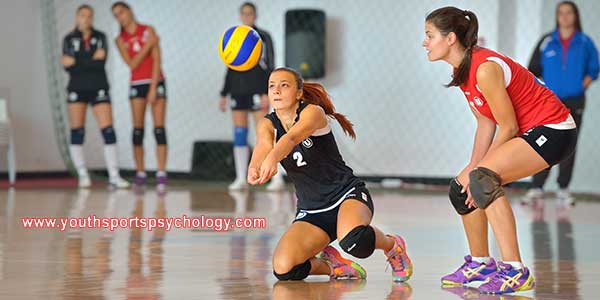
Athletes’ Acceptance of Mental Training
Often, young athletes don’t understand the benefits of mental game training.
They say they’re already mentally strong. Or they’re afraid that they’ll have to sit on a couch and reveal their innermost vulnerabilities. Mostly, they don’t understand what mental game training is–or its benefits.
To help sports kids embrace the benefits, let them hear from the pros.
The pros know: A strong mental game is key to succeeding in any sport.
Here are quotes from some of the greats:
Arnold Palmer said, “Success in golf depends less on strength of body than upon the strength of mind.”
Stephen Curry talked about how he treats pressure, turning anxiety into excitement.
He said, “I’ve never been afraid of big moments. I get butterflies – I get nervous and anxious, but I think those are all good signs that I’m ready for the moment.” That’s an important mental game strength!
Lou Gehrig said, “The ballplayer who loses his head, who can’t keep his cool, is worse than no ballplayer at all.”
Michael Jordan, one of the most focused athletes of all time, said, “I would tell players to relax and never think about what’s at stake. Just think about the basketball game. If you start to think about who is going to win the championship, you’ve lost your focus.”
These quotes address important mental game skills: knowing how to make anxiety work to one’s benefit; understanding the importance of staying composed; and knowing what to focus on when the stakes are high.
If you help your young athletes understand the benefits of mental game training, they’ll embrace the mental game, which can boost their confidence and improve performance consistency.
One last quote from a sports great:
Daniel Crosby said, “Dreams are so important. You need to have big goals and expect a lot of yourself, but you have to enjoy the ride too,” echoing the message that without enjoying the process, athletes won’t succeed in the long term.
If you’re athletes don’t embrace mental game coaching, you might share a quote from one of their idols.
What athletes don’t understand, they don’t embrace. Mental game coaching is an important part of every athlete’s performance improvement program. And at the same time, your athlete learn life skills that can be applied beyond sports.
Related Articles on Youth Sports:
- How to Explain Mental Training to Teens
- Helping Young Athletes Embrace Mental Training
- Mental Training Programs For Young Athletes
*Subscribe to The Sports Psychology Podcast on iTunes
*Subscribe to The Sports Psychology Podcast on Spotify
The Composed Sports Kid

“The Composed Sports Kid” audio and workbook digital download program for young athletes and their parents or coach helps kids cope with frustration and anger in sports. Help your sports kids learn how to manage expectations and let go of mistakes so they can keep their head in the game.
The Composed Sports Kid system is really two programs in one–one program to train parents and coaches how to help their kids practice composure, and one program that teaches young athletes–ages 6 to 13–how to improve composure, let go of mistakes quickly, have more self-acceptance, and thus enjoy sports more!
